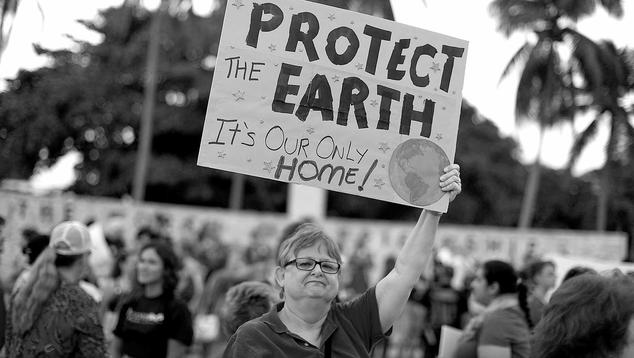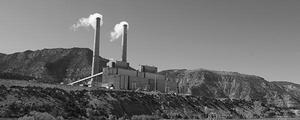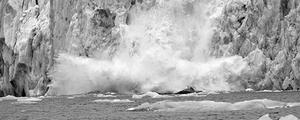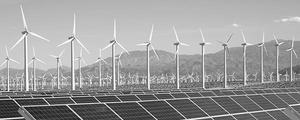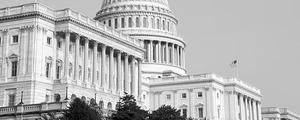Partisan polarization has become a regular fact of life in our nation, as the views of Republicans and Democrats diverge on many issues these days. While this didn't start with the presidency of Donald Trump, it has accelerated during his time in office. Support for efforts to protect environmental quality, once viewed as a "uniting issue" when such efforts became prominent in the 1970s, is now characterized by strong divisions along party lines, as documented in the latest Gallup Environment poll.
While one might expect partisan differences in views of how the government is handling environmental policies, a strong Democratic-Republican gap has also emerged in personal worry about environmental quality.
Looking first at the views of Americans as a whole over the past two decades, we see variation across presidential administrations on two attitudes: the percentage worrying "a great deal" about the quality of the environment and the percentage saying that government is doing "too little" in terms of protecting the environment.
Responses to both items reflect a fairly similar pattern, rising during the George W. Bush administration (which had a weak record on environmental protection), falling during the Barack Obama administration (which was more pro-environment) and then rising again during the current Trump administration. The 61% saying that government is doing too little to protect the environment in this year's survey is close to the peak of 62% giving that response in 2018 and 2006, while the 47% saying they worry a great deal about environmental quality matches the peak in this response registered in 2017.
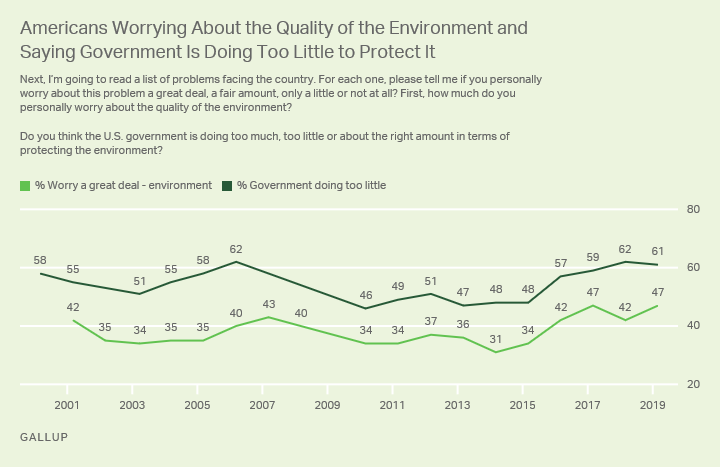
Shifting Trends on the Environment Among Republicans and Democrats
These trends for the general public mask opposing shifts in views among Republicans and Democrats, especially in very recent years. Focusing first on worry about environmental quality, in 2001, under G.W. Bush, Democrats were much more likely to worry a great deal about environmental quality than were Republicans (55% versus 30%, a difference of 25 percentage points). Except for a small drop in 2002 (to 18 percentage points), this gap remained relatively stable through 2013, when it stretched to 27 points. The partisan gap in worry began to widen a bit each year through 2017 and has averaged 45 points during the Trump administration. This year, Democrats are over three times as likely to say they worry a great deal about environmental quality than are Republicans (65% versus 19%).
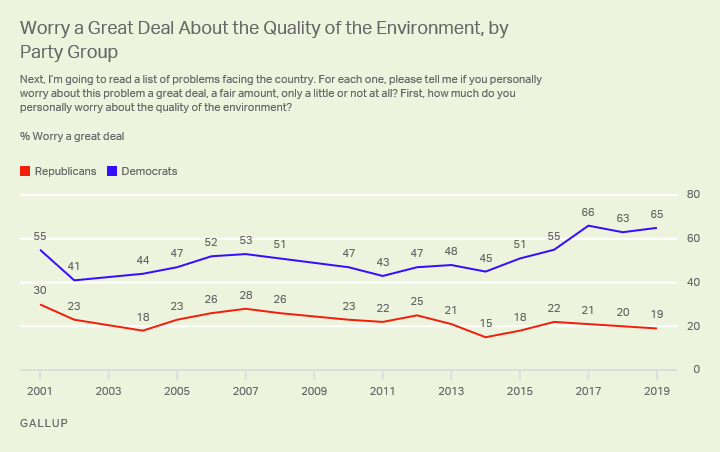
A slightly different pattern holds for those saying that the government is doing "too little" to protect environmental quality. In 2000 -- the last year of Bill Clinton's presidency -- Democrats were significantly more likely than Republicans to give this response (66% versus 44%, a 22-percentage-point difference), but the gap rose to 45 percentage points for the three-year span from 2004 to 2006 under G.W. Bush, as Democrats' concern mounted and Republicans' fell.
By the time the question was asked again in 2010, under Obama, the partisan gap had closed to 29 percentage points, largely owing to fewer Democrats being concerned that too little was being done. The gap then varied by only a few points each year through 2016 when it stood at 23. However, it has more than doubled in the subsequent three years under the Trump administration. This year 86% of Democrats say that government is doing too little in terms of environmental protection, nearly matching last year's record-high 87%, while only 25% of Republicans give this response -- a record low. As with worrying about environmental quality, Democrats are now over three times as likely as Republicans to see government as doing too little to protect the environment.
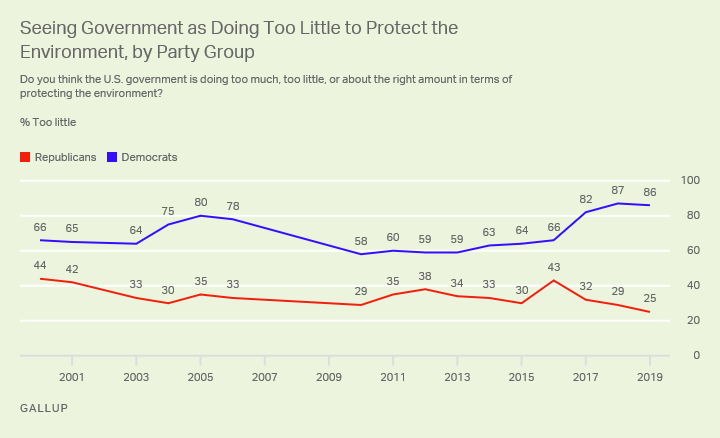
Changes in Perception of Environmental Issues Over Time
The trends over nearly two decades on these two aspects of environmental concern reveal three key points.
- First, as we entered the new millennium, there was already substantial partisan polarization on both measures of environmental concern, with Democrats expressing substantially higher levels of worry about environmental quality and belief that not enough was being done to protect it.
- Second, these gaps persisted with only modest variation until the Trump era.
- Third, for both items, the partisan gap has become enormous under the Trump administration.
It appears that President Trump's anti-environmental rhetoric, policies and political appointees (e.g., Scott Pruitt as EPA Director and Ryan Zinke as Secretary of Interior) have pushed Democrats to express record levels of worry about environmental problems and concern about the government's commitment to environmental protection. At the same time, perhaps reflecting their widespread backing of Trump's job performance overall, Republicans are feeling less concerned than they were even under Bush about environmental quality or the government's commitment to the issue. With such a gulf in perspectives, perhaps environmental protection in general, and climate change in particular, will finally become prominent issues in the 2020 election.
Riley E. Dunlap is Gallup Scholar for the Environment and Regents Professor of Sociology and Dresser Professor Emeritus at Oklahoma State University.
View complete question responses and trends.
Learn more about how the Gallup Poll Social Series works.
